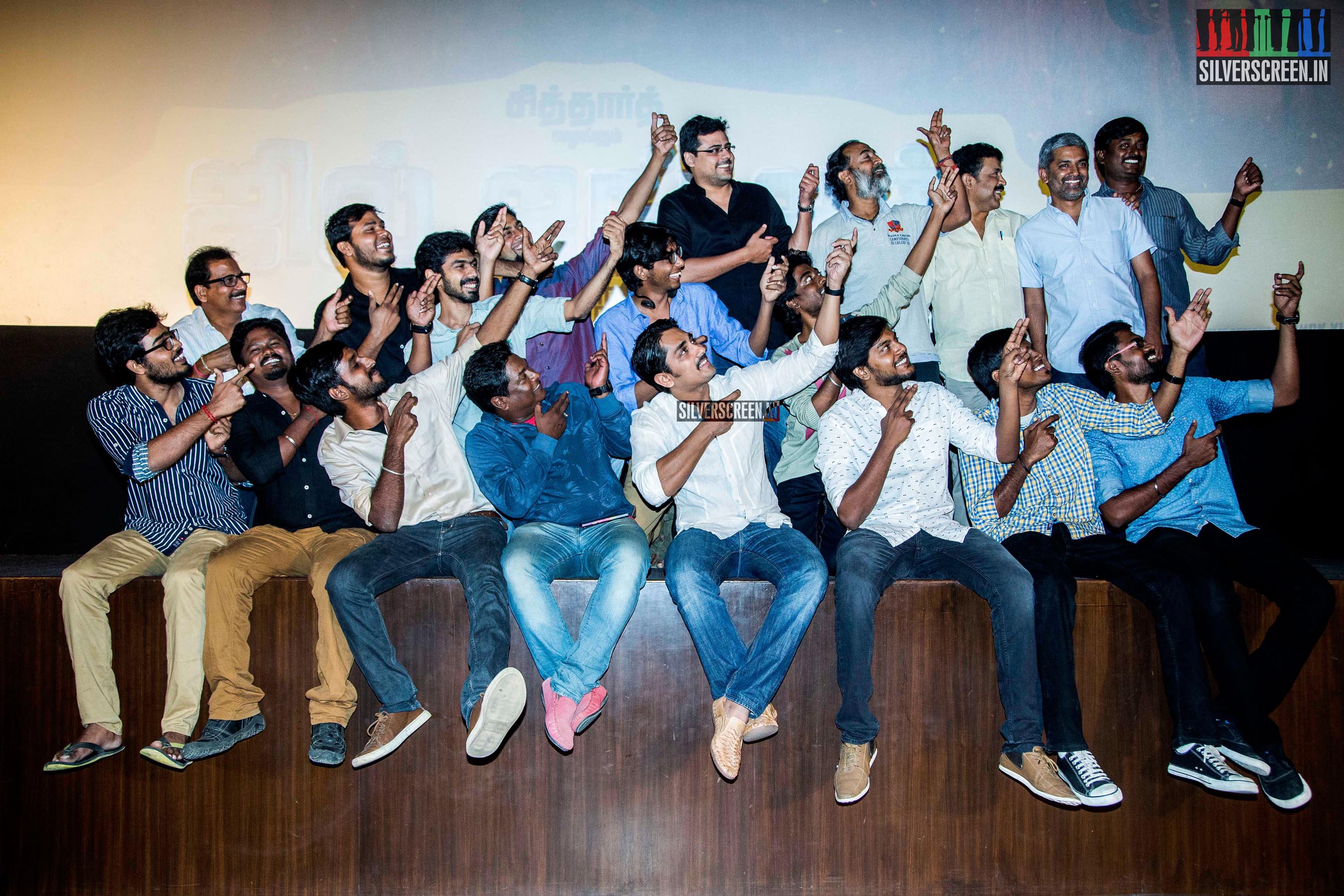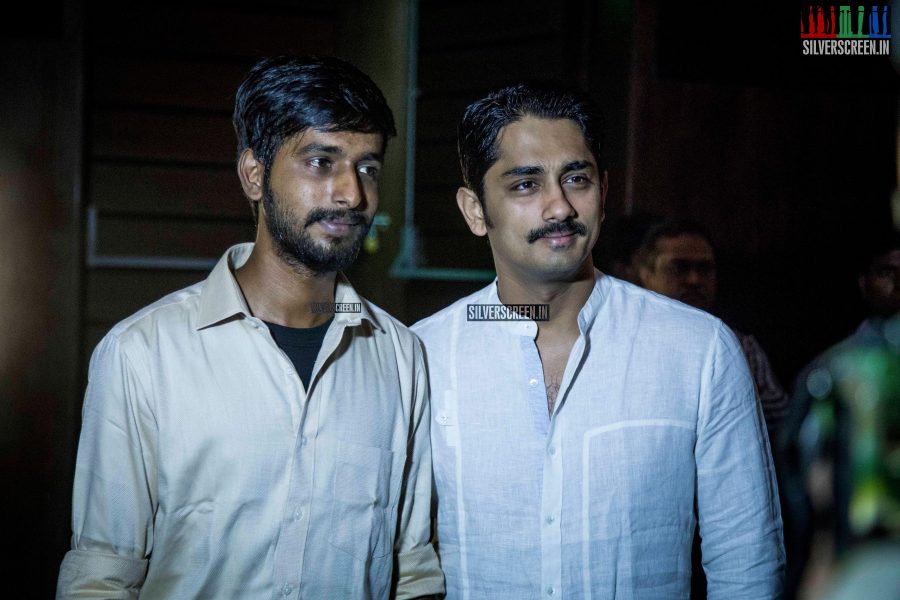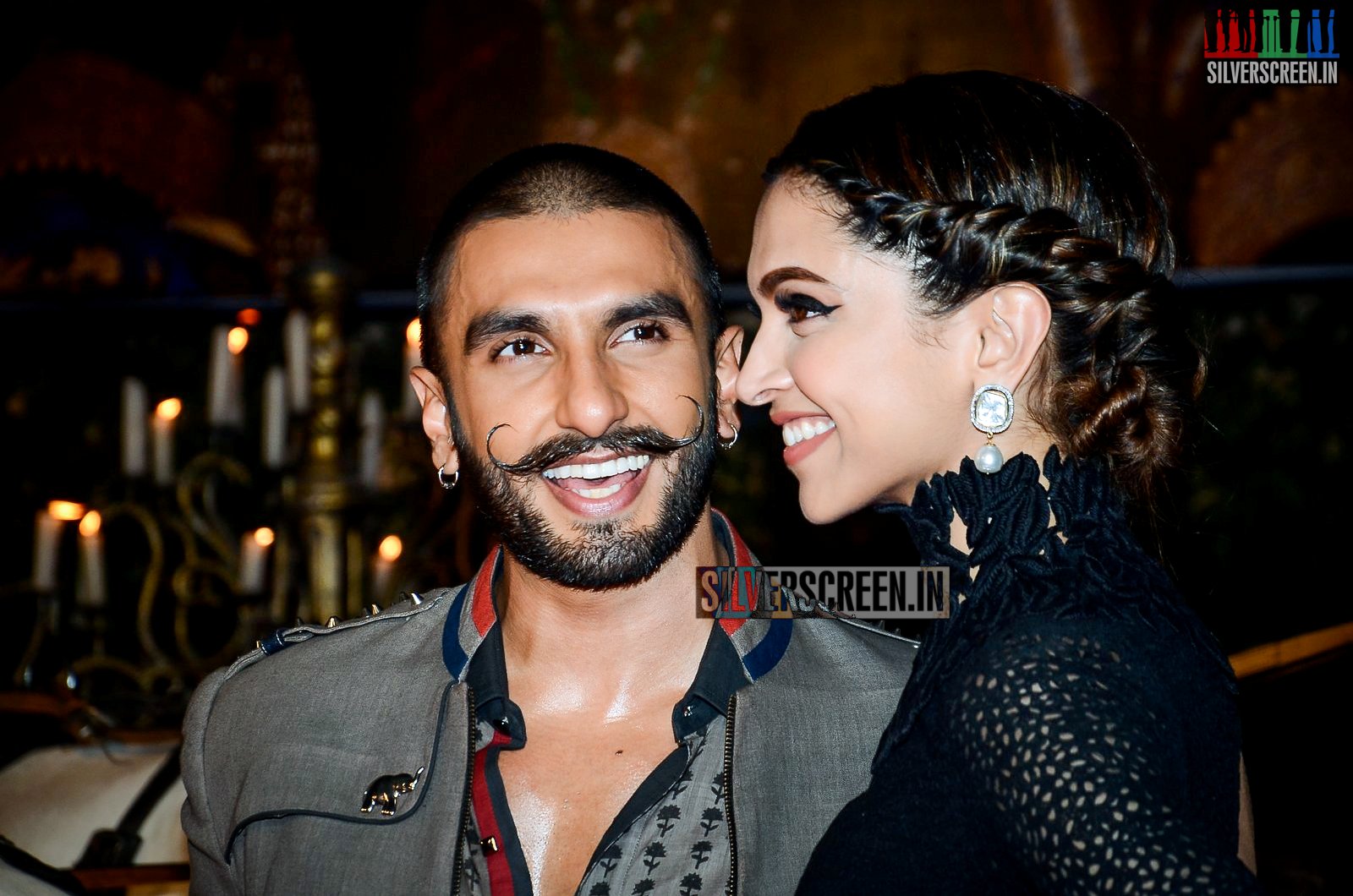Deeraj Vaidy is brimming with excitement. Every few minutes, his phone rings. The 25-year-old’s debut feature film Jil Jung Juk is scheduled to release on February 12, and the team is busy with the final editing works. The press meet for the film was his first ever media interaction. Why, I ask him, did he focus so much on how his name was spelt? “It’s almost as if they focused only on getting D and V right. I read many articles with my name spelt wrong, so much so that they even credit me as Dinesh. So, I just wanted to clear the air about that,” he says.
*****
I ask him what every debutante director is asked – how did he get into films? “Therila (I don’t know)…I guess I had reached a point where I had to decide what I wanted to do for the rest of my life. That’s when I realized that I had a penchant for writing stuff. In fact, when I was 11, I wrote a novella on the theme of alien invasion. So I wanted to go back to my roots and write, because that was the one thing I was very true and honest to. My parents were obviously not okay with it. And short films happened. Around 8-9 of them. Then I moved on to making the pilot of the film, which resulted in Jil Jung Juk today.”
“All the short films I’ve made were done on a zero budget. I’d send them to festivals. If they won any prizes, I’d use the money for my next project. I had the freedom to experiment with genres. I did psychological thrillers, gangster action film, a comedy, a sci-fi film and then a drama.” So did he attend a course to learn the aspects of film making? “I go by what my Thalaivar Nolan said – things that you learn out of curiosity are the most profound. Only that stays with you for a long time. So the subjects I studied in school and college, I did because I had to. But films, I learnt because I really wanted to,” he explains.
Nearly every debutant director is introduced with the tag of a famous director, whom he/she assisted in the past. . Not so with the new crop of Karthik Subbaraj, nalan Kumarasamy, Thyagarajan Kumararaja, and of course, Deeraj. “It should’ve been a pre-requisite, I guess. But, I somehow never felt the need for it. When it comes to assisting someone, it means that you work under his ideas, his pattern and style, so I wasn’t sure how that was going to help me. Moreover at home, I was given two options – either work, or do films, there was no middle ground. There is definitely an advantage in being an AD (Assistant Director). It gives you a heads up of how to handle production on a big scale. But I lucked out. I had a great crew to plan and execute the shoot.”
*****
Among actors today, if Siddharth exemplifies coolness, it’s because of the kind of films and genres he has been open to. His passion for good cinema is such that hits and flops don’t deter him from choosing his projects. I ask Deeraj how Siddharth came on board the project.
“We finished shooting the pilot of Jil Jung Juk. When I reached out to producers, the first thing they asked me was who I assisted. But that was why I had shot the pilot, to convince them that I could pull off the script. Most people were close minded and only viewed the script from a business angle. I was becoming increasingly frustrated. That was when my mother and I happened to see Siddharth giving an interview on TV. He was talking about being open to fresh scripts and new directors. I took that seriously and tried getting in touch with him. I sent him a trailer of the pilot on Whatsapp. Conversations and discussions ensued. Siddharth said he fully believed in my story, but wasn’t sure if any producer would take it up”
“Two days later, he called me and said he would produce it. It was surreal,”
Deeraj has always been a fan of Siddharth’s work, but not because he associates him with the ‘chocolate boy’ tag (something Siddharth doesn’t particularly like either). “I really liked his taste in cinema. He has done a few films that I don’t think any other actor would have taken up. He is also a fan of Paul Thomas Anderson, who I practically worship. He had tweeted about him a few times, and that was in the back of my head. I thought he would be the best person to hear my script. ‘Jil’ is a hard character to explain. But somehow Siddharth and I connected well, and he easily understood what I had in mind.
“Siddharth understood the potential of this film. We know that this film can fall into two categories. It could become a cult film, which doesn’t do well at the box office, but is remembered. Like Aaranya Kaandam. Or it could be a huge hit. He was open to both outcomes – if it does good business, well and good. If it doesn’t, that’s all right. That’s what he said. I don’t think many producers would think that way.
“There are two ways the role of ‘Jil’ can be played. Along the lines of Jack Sparrow from Pirates of The Caribbean or Ryan Gosling from Drive. We decided to play Jil as a mix of these two extremes. Jil is cool in his own weird way.
“I don’t limit my thoughts. There are no boundaries there. When I let my imagination run wild, things strike me.
The way a story forms in your head is a beautiful process.
I don’t mess with it by wanting to deliberately add whacky elements to it.”
*****
About Jung and Juk
“I think most mainstream Tamil actors wouldn’t want to play Jil. Because Jil isn’t the one who dominates the scene. They would want a lion’s share of the important dialogues, leaving Jung and Juk as walking props. But in my script, Jung and Juk are equally important. All three characters contribute to the story’s development.
“Jil is ballsy. He has the skills to manipulate and manoeuvre himself out of any sticky situation. Juk is completely off the radar, the most weird person you’ll ever come across. His mind works in the most irrelevant ways, and he lives in his own parallel universe. Jung is stuck between these two. He has to do a balancing act. He can almost be a Jil or a Juk.
Recommended
“Avinash, who plays Jung, has contributed so much to the character. The way he delivered the dialogues, with that constant face twitch, which sadly stuck for a while even after the shoot, added 30-40% to what I had originally written.
“Sananth played Juk in the pilot too. He even connected some of his own traits into the character. So Juk is not just the Juk I wrote, but also Sananth’s own Juk.
“The chemistry between them was right from the first day itself. Even though Siddharth has been in the industry for so long, he doesn’t carry that starry aura around him. We couldn’t have made this film if we had been serious throughout the shoot. We needed to be super fun for the output to be fun.”
*****
As a viewer, the trailer of the film left me dumbfounded. I couldn’t comprehend this madness. I watched it twice, then thrice; but no respite. I figured that perhaps the film is so zany, it can’t be glimpsed in an under 3 minute trailer. Who expects to see a blue-haired protagonist, a bright pink car (so bright you wish you had brought your sunglasses), and a host of characters with equally crazy hairstyles and otherworldly clothes? Deeraj talks to me about The Sokku maakana Ulagam’:
“The film is set in 2020, based on the probability that something could happen to make the world look that way. Time has nothing to do with the concept, really. The wackiness may seem hard to relate to the. That’s why the film is set in the future, to justify the quirkiness in the film. We have used a brown tint. From the colour tone to the character’s outfits.”
Equally crazy are the sets in the film.
“The Civil Engineer in me rose to the occasion when it came to the sets. I wanted the indoor set to be aligned in a particular way. I had chalked out the characters’ positions too as it would contribute to what was happening in the scene. Siddharth was open to having sets in the film. Walking into the sets was personally the most exciting part of the shoot for me”
“Watching so many people working so hard to bring my vision to life was humbling,”
*****
 Until last year, Deeraj had just been making short films, a space where no business is involved. But now, as he enters the big market of Kollywood, I ask him if he feels the pressure of numbers. “I have now made the film I have always wanted to make and I am very happy with the outcome. No director can say that he is 100% satisfied with the way his film was made. If he does, then avan OB adikaran nu artham. Even I had to make compromises due to some constraints. I watched the final product almost everyday, and I can say that I am lucky to have made this film with a lot of freedom. I do not want to think about the success or failure of the film now, but there is a great sense of optimism in me and the whole team.” A confident Deeraj concludes, and grabs his phone immediately to make a few more frantic phone calls.
Until last year, Deeraj had just been making short films, a space where no business is involved. But now, as he enters the big market of Kollywood, I ask him if he feels the pressure of numbers. “I have now made the film I have always wanted to make and I am very happy with the outcome. No director can say that he is 100% satisfied with the way his film was made. If he does, then avan OB adikaran nu artham. Even I had to make compromises due to some constraints. I watched the final product almost everyday, and I can say that I am lucky to have made this film with a lot of freedom. I do not want to think about the success or failure of the film now, but there is a great sense of optimism in me and the whole team.” A confident Deeraj concludes, and grabs his phone immediately to make a few more frantic phone calls.
*****



